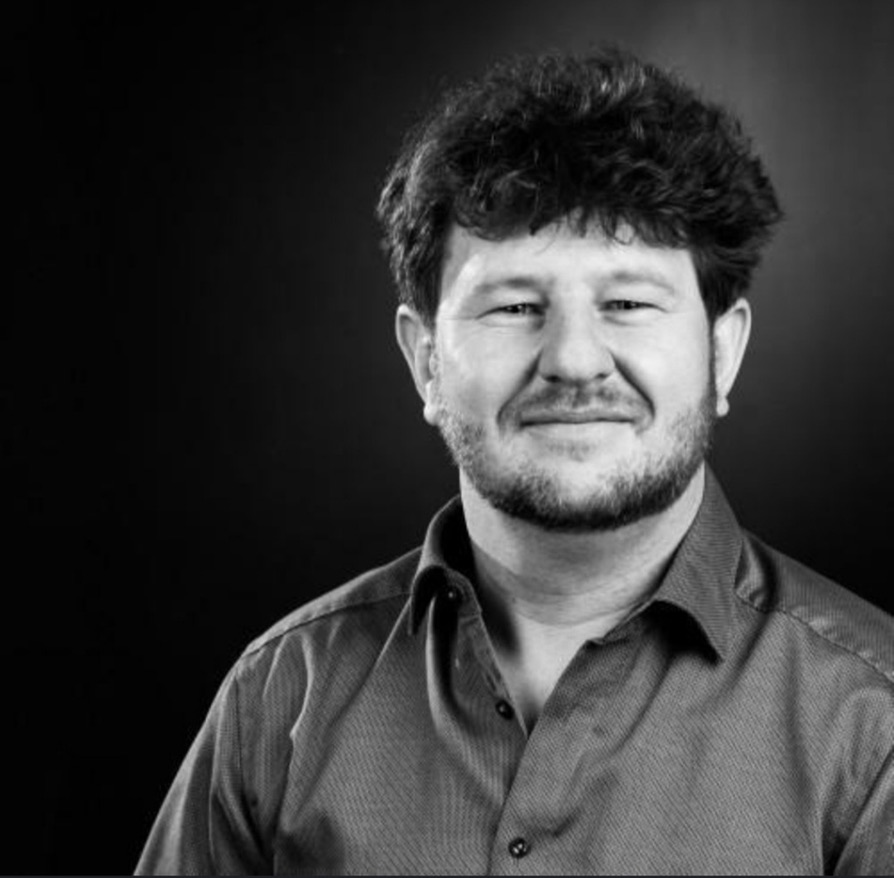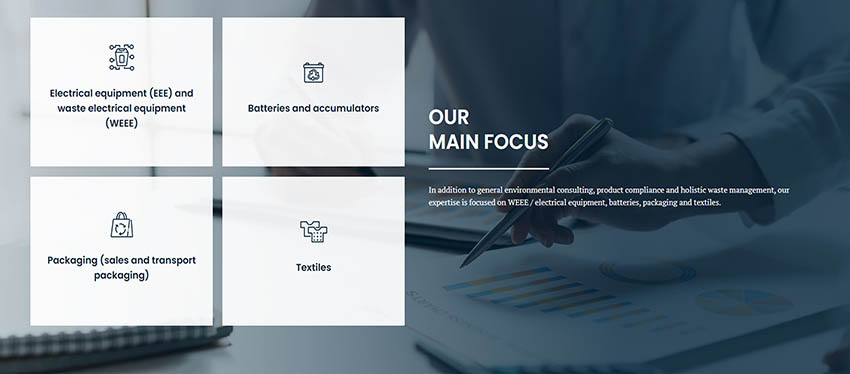Ecologicon, founded in 2019 and based in Southern Germany, is more than just consulting: Clients benefit from their ideas as well as long-term expertise and network worldwide in compliance issues in the areas of environment, product and waste, including hazardous and scheduled waste. The company offers tailor-made solutions for (waste) electronic and electrical equipment, batteries, packaging and textiles. One of their strengths is the creation and evaluation of the economic viability of concepts and projects.
For Ecologicon it’s important to offer a completely tailorized service package covering all needs with one of their key expertise staff as a personal contact person.
Interview with Ralf Tischendorf, Business Development Manager at ECOLOGICON GmbH.
Easy Engineering: What are the main areas of activity of the company?
Ralf Tischendorf: ECOLOGICON offers consulting and support services in 3 major key areas for different target groups in their respective market: sustainability, product and waste management. Furthermore, we are actively involved in the development of projects and their implementation in sustainable recycling and waste management for clients from the public and private sectors – also within the framework of research and development aid projects carried out worldwide. We mainly focus on South and East Asia, India, Central Africa and Europe and are planning to extent the scope. Our current projects include CE-RISE and ReSoCart-ED.

E.E: What are the ranges of services?
R.T: In the area of sustainability consulting/support, our portfolio includes environmental and sustainability strategies, circular economy and legally compliant waste management, auditing processes, the provision of (environmental) officers and the approval management.
In the area of product management/compliance, our portfolio includes the analysis of the product and any legal obligations connected, the support and the implementation of Extended Producer Responsibility (ERP), the implementation of sustainable product strategies as well as the support to receive product certifications.
In the area of waste management, our portfolio includes solutions for the material flow management, for the operational waste management, the provision of waste officers, the support on shipments of waste as well as national and international take-back concepts.
E.E: What’s the news about new services?
R.T: Even though our key expertise comprises the above-mentioned areas, we are always happy to dive deeper into special requests that go beyond what we are currently offering. We are looking for software-based solutions to be able to provide service for the entire supply chain, e.g. by using a digital product pass (DPP). A DPP for collecting and sharing product data throughout its entire lifecycle is used to illustrate a product’s sustainability, environmental and recyclability attributes. Recorded product data from across the supply chain including raw material sourcing and manufacturing process is captured on the DPP as well and shared amongst a few stakeholders and participants – unlocking benefits, applications and value across entire ecosystems.

E.E: At what stage is the market where you are currently active?
R.T: We are a consulting company focusing on EPR (Extended Producer Responsibility) and waste management across Europe. EPR systems and take back schemes are key attributes to tackle the increasing amount of electrical and electronic equipment, batteries/accumulators (e.g. EV batteries), packaging materials (e.g. plastics) as well as textiles in the near future. This will support creating a financial system and cost coverage for waste management. Financing solid waste management systems is a significant challenge, for ongoing operational costs rather than for capital investments.
E.E: What can you tell us about market trends?
R.T: Worldwide, around 2 billion metric tons of municipal solid waste are generated on an annual basis, with at least 33 percent of that not being managed in an environmentally sound manner (source: World Bank). However, with rapid population growth and urbanization in Sub-Saharan Africa, South Asia, and the Middle East and North Africa, the total waste generation is expected to drastically increase by 2050. This is both a huge challenge and opportunity for new markets.
Climate change and environmental degradation are an existential threat to Europe and the world. Next to this, Europe needs to reinforce more circular economy efforts, including waste prevention. EU waste policy aims to contribute to the circular economy by extracting as many high-quality resources from waste as possible.
Certain categories of waste require specific approaches. Therefore, as well as the overarching legal framework, the EU has many legislations to address different types of waste.
As part of this transition, several EU waste legislations will be reviewed. A few updates and trends, shortly listed relevant for our scope:
- EU: textile reform
- EU: batteries – new regulation
- EU: packaging – new draft regulation
- EU: due diligence obligation supply chain

E.E: What are the most innovative services marketed?
R.T: Providing exceptional customer service is often what sets successful companies apart from competitors. The evolution of customer service today is greatly affected by technology. Whether it is the use of IT or tools to help brands stay on top of their service.
E.E: What estimations do you have for 2023?
R.T: In 2023, our team will grow and double its size compared to last year state. This is also reflected in our turnover and business capacity. This development shall be continued in the next months and following years.
